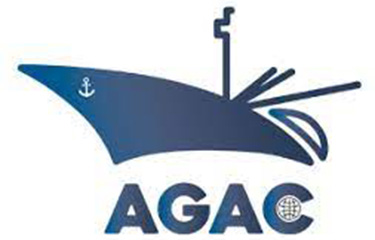The Association of Large Freezer Tuna Vessels (Asociación de Grandes Atuneros Congeladores, AGAC) has achieved the Marine Stewardship Council (MSC) certification for its skipjack tuna in the Indian Ocean. There are 14 purse-seine vessels that compose the AGAC fleet in the Indian Ocean, in which the certification applies to all of those.
“Congratulations to AGAC for this achievement in the Indian Ocean, which is part of wider assessment in the different oceans where the tuna association operates," Marine Stewardship Council Program Director for Spain and Portugal Laura Rodriguez said. "We acknowledge the decade of work that the members of the association have undertake to improve their practices and to meet the MSC standard. This certification is excellent news for business and consumers looking for sustainable tuna."
Catch from both fish-aggregating devices (FADs) and from free-school sets are included in this certification. The assessment for MSC certification began in 2020 and demonstrated the fishery is a leader in sustainable fishing, according to MSC.
Since 2012, AGAC implemented a code of good practice (CGP) for fishery sustainability, in which compliance is verified annually by the independent scientific organization AZTI. All fishing vessels included in the current certification adhere to this binding CGP, according to MSC. The CGP addresses impacts on non-target species, including adopting non-entangling FADs before the requirement became mandatory in some of the regional fisheries management organizations.
AGAC has made strides to reduce impact by FADs usage on vulnerable habitats and the ecosystem. The company launched the first multi-stakeholder FAD-recovery project in the world in the Seychelles, spearheaded the transitions to biodegradable and non-entangling FADs, and monitored that transition through an observer program.
It has taken over 10 years of work improving fishery sustainability in order for AGAC to attain MSC certification – work which included a Fisheries Improvement Project (FIP) that started in 2016 and was completed in 2020. It also took more than two years of independent assessment that began in 2020 with a public announcement and presentation of the preliminary assessment by Lloyd’s Register. Lloyd’s Register, now LRQA, was the independent conformity assessment body that verified the fishery’s sustainability. Sixteen stakeholders participated in the assessment progress by submitting information or completing interviews.
MSC certification allows AGAC’s skipjack tuna from the Indian Ocean to be sold with the MSC label to signify to consumers the tuna has been labeled sustainable by the MSC Fisheries Standard – the world’s leading standard for sustainable wild-capture fishing, with more than 530 fisheries certified to the standard to represent 16 percent of wild marine catch. The MSC fisheries standard is based on three main principles: healthy fish stocks, minimization of impacts on the marine environment, and effective fisheries management systems.







